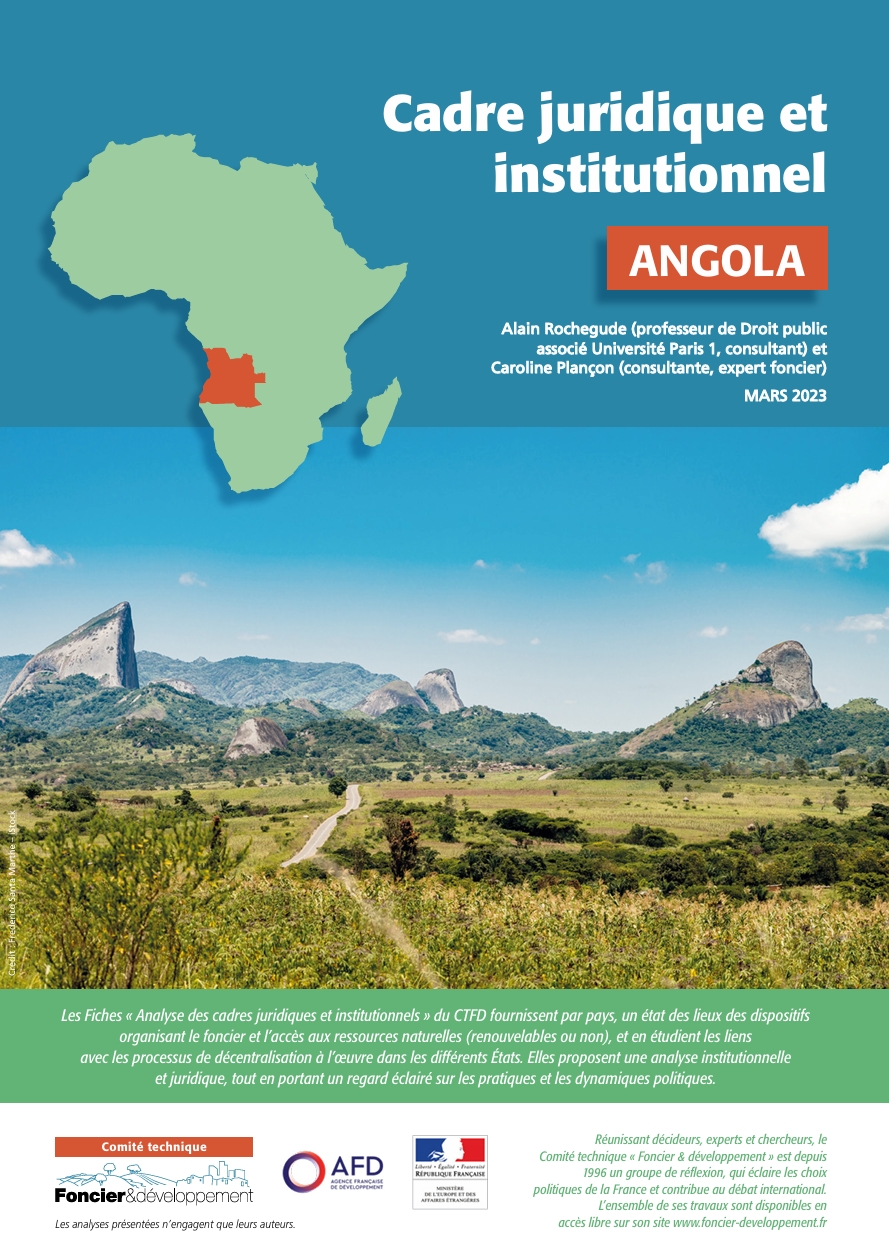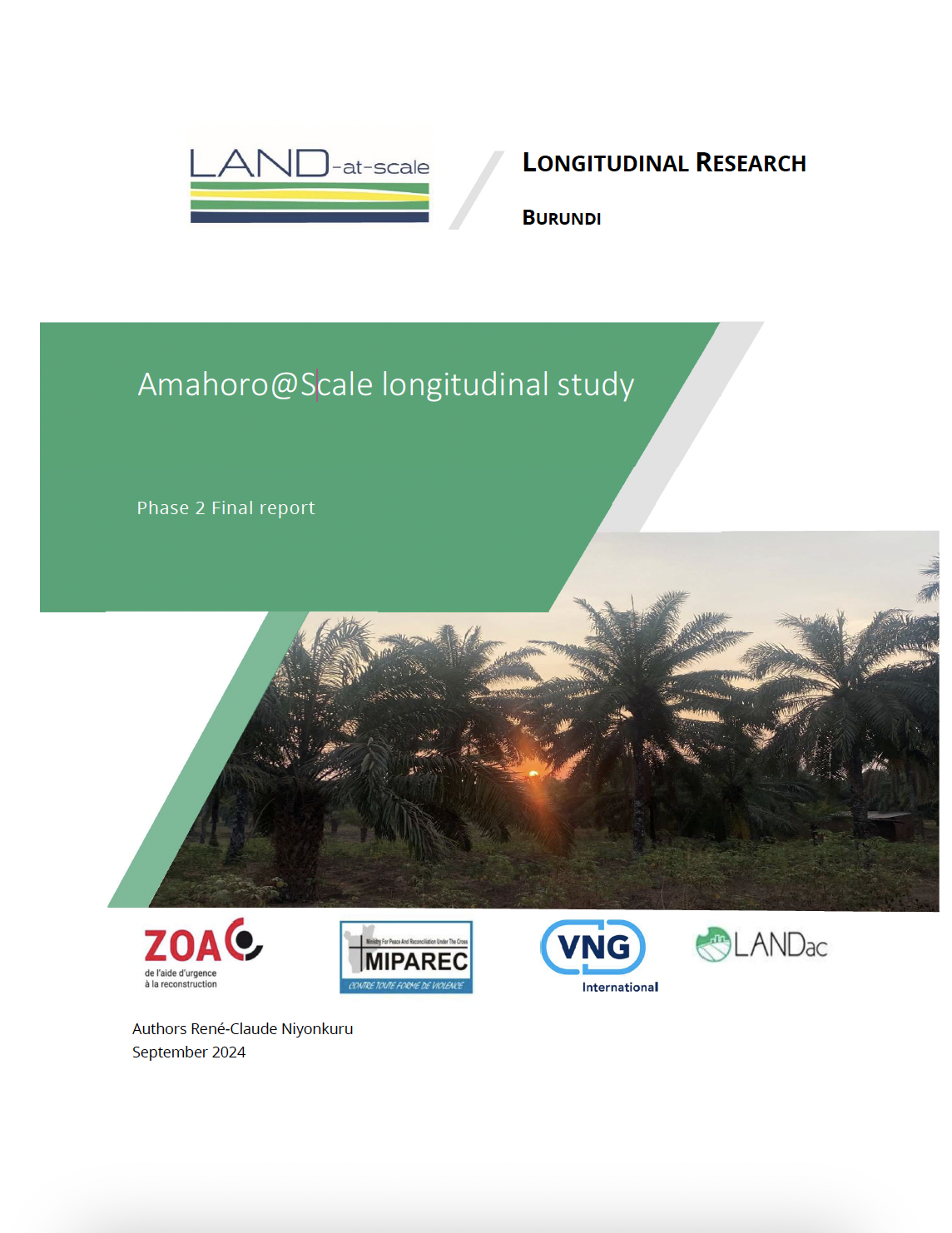Les fiches « Analyse des cadres juridiques et institutionnels » du CTFD fournissent par pays, un état des lieux des dispositifs organisant le foncier et l’accès aux ressources naturelles (renouvelables ou non), et en étudient les liens avec les processus de décentralisation à l’œuvre dans les…
The context of Nyanza-Lac is both complex and interesting for researching land issues. It has a very high population density (more than 50% of the whole population of Makamba Province lives in Nyanza-Lac) and attracts flows of intra- and interregional migrants in search of fertile land and…
This chronology has been researched as supplementary material for the Land Portal country profile on Burundi and the 2024 data story (forthcoming) on the challenges of restoring land rights in post conflict settings.
This chronology has been researched as supplementary material for the Land Portal country profile on Burundi and the 2024 data story (forthcoming) on the challenges of restoring land rights in post conflict settings.
After two years of organizing the LAND-at-scale Exchange in Utrecht, the third LAND-at-scale exchange took place from June 9th to June 13th in Uganda, hosted by LAS partner UN-Habitat/ Global Land Tool Network. Nearly 60 LAS country and knowledge partners came together in Kampala to exchange…
Gender inequality persists in Burundi’s agricultural sector, especially in the bean value chain dominated by women. Women often have less access to improved seeds and to productive technologies. Interventions dubbed “gender-responsive plant breeding†have been launched to develop new…
En effet, la taxe de transaction sur la proprieté foncière soulève au Burundi une problématique à la fois économique et juridique. L’importance de la question est économique comme l’économie burundaise repose sur l’agriculture et l’élevage et plus de 90% de la population burundaise dépend…
Participatory Varietal Selection (PVS) is the selection by stakeholders of varieties in advanced testing stages by plant breeding
programs. With Burundi as a case example, this study incorporated qualitative Focus Group Discussions (FGDs) into the
quantitative PVS structure so as to…
The adoption and use of climate-smart agricultural practices are critical for improving the productivity and sustainability of smallholder farming systems. However, the gendered dimensions of access to and use of climate-smart agriculture in common bean ( Phaseolus vulgaris L.) production remain…
In the developing world, the drivers behind changes in social ecological landscapes (SEL) are intricate and have been steadily intensifying over the years. Regions blessed with abundant natural resources, encompassing fertile soils, lush forests, freshwater bodies, valuable minerals, and more,…
Financial inclusion has become an important goal of the global development agenda, particularly for post-conflict and fragile states. Enhancing financial inclusion is vital for a country like Burundi which aims to achieve inclusive growth in its attempt to break free of its fragility. However,…
Over the past seven years (2015-2021), the Pan-Africa Bean Research Alliance (PABRA) and the Institut des Sciences Agronomiques du Burundi (ISABU), supported by the Swiss Agency for Cooperation and Development (SDC) and Global Affairs Canda (GAC), have empowered women to become entrepreneurs in…



